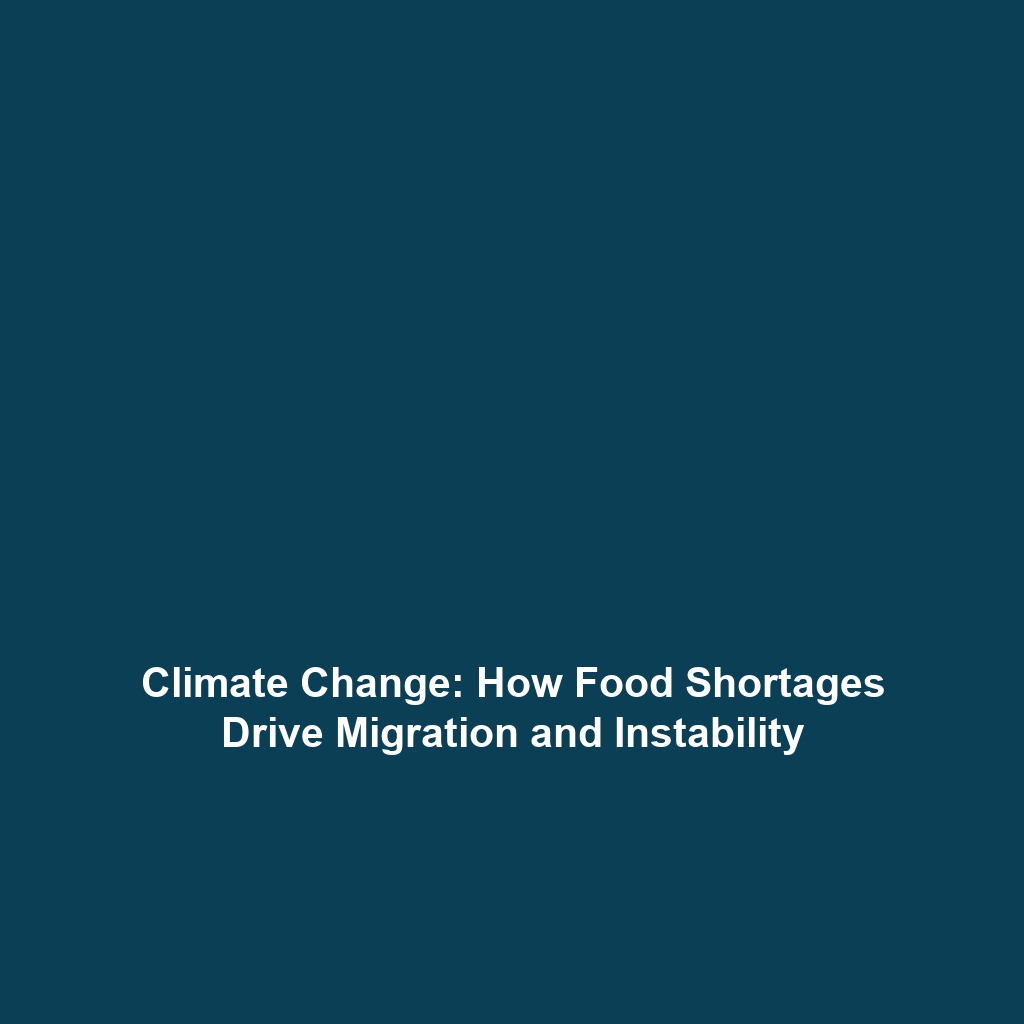The Role of Food Shortages, Migration, and Social Instability Driven by Changing Climates
Introduction
The interplay between food shortages, migration, and social instability has long been a critical aspect of human societies throughout history. As climate change accelerates, its impact on agriculture, resource distribution, and populations becomes increasingly significant. Understanding how these factors intertwine within the broader context of Climate History is vital for addressing contemporary challenges. This article explores the multifaceted consequences of climate change, focusing specifically on how food shortages influence migration patterns and contribute to social unrest, while underscoring the importance of this research in fostering future resilience against climate crises.
Key Concepts
Food Shortages and Climate Change
Food shortages result from changing climatic conditions that affect agricultural yields. Droughts, floods, and temperature fluctuations can lead to crop failures, reducing food availability. These shortages can instigate significant migration as individuals and families seek more stable living conditions.
The Migration Crisis
Historical evidence shows that significant population movements often coincide with periods of environmental stress. When regions can no longer support their populations due to crop failures or resource depletion, individuals are compelled to migrate, leading to increased competition for resources in receiving areas. This phenomenon highlights the intricate link between climate history and human demographics.
Social Instability
As migration increases and resources become scarce, social tensions rise. Communities may fracture over competition for food, leading to conflicts and instability. This relationship illustrates how food insecurity serves as both a catalyst for migration and a precursor to social unrest, further emphasizing the importance of this issue in the study of Climate History.
Applications and Real-World Uses
Understanding the role of food shortages, migration, and social instability is essential for policymakers and researchers alike. Applications of this knowledge in Climate History include:
- Policy Development: Creating robust frameworks for disaster preparedness and food security.
- Urban Planning: Integrating migration forecasts into local infrastructure development.
- International Relations: Addressing transnational migration issues stemming from climate-related food shortages.
Current Challenges
Studying the interconnectedness of food shortages, migration, and social instability presents several challenges, such as:
- Limited access to comprehensive data on historical famine and migration patterns.
- Difficulties in modeling complex socio-environmental interactions.
- The potential for political bias when addressing migration crises linked to climate change.
Future Research and Innovations
Upcoming research in the domain of food security and climate migration aims to leverage new technologies and methodologies. Breakthroughs in data analytics, remote sensing, and predictive modeling may provide insights into future migration patterns. Additionally, interdisciplinary studies will be vital to balance ecological, economic, and social factors, ensuring a comprehensive approach to understanding the impact of climate change on human societies.
Conclusion
The role of food shortages, migration, and social instability driven by changing climates is a crucial area of study within Climate History. This complex interplay highlights the urgent need for proactive strategies to enhance food security, manage migration, and promote social cohesion in the face of climate change. As we move forward, continued research and innovative solutions will be necessary to mitigate the challenges posed by these urgent issues. For further reading on related topics, consider exploring our articles on the impacts of climate change on agriculture and socio-economic impacts of migration.
